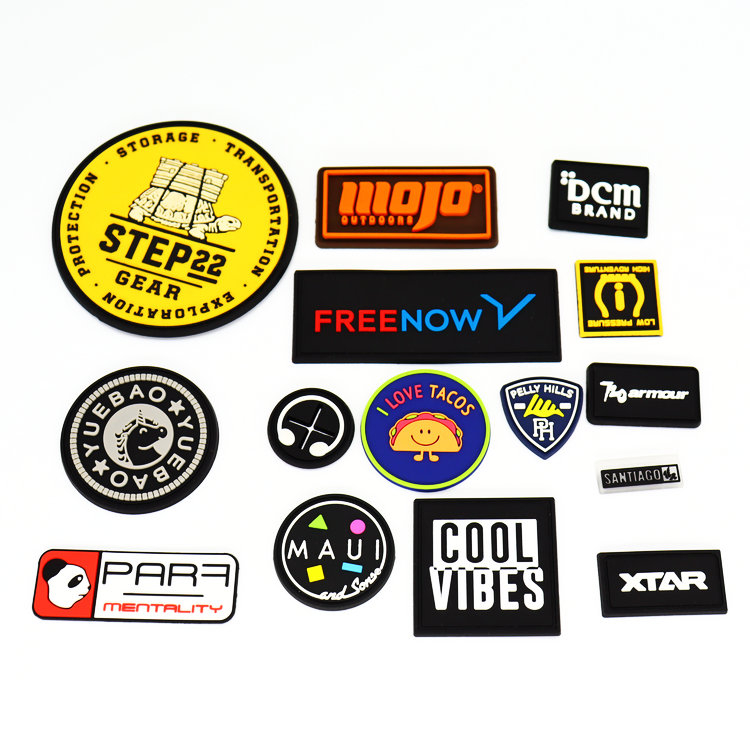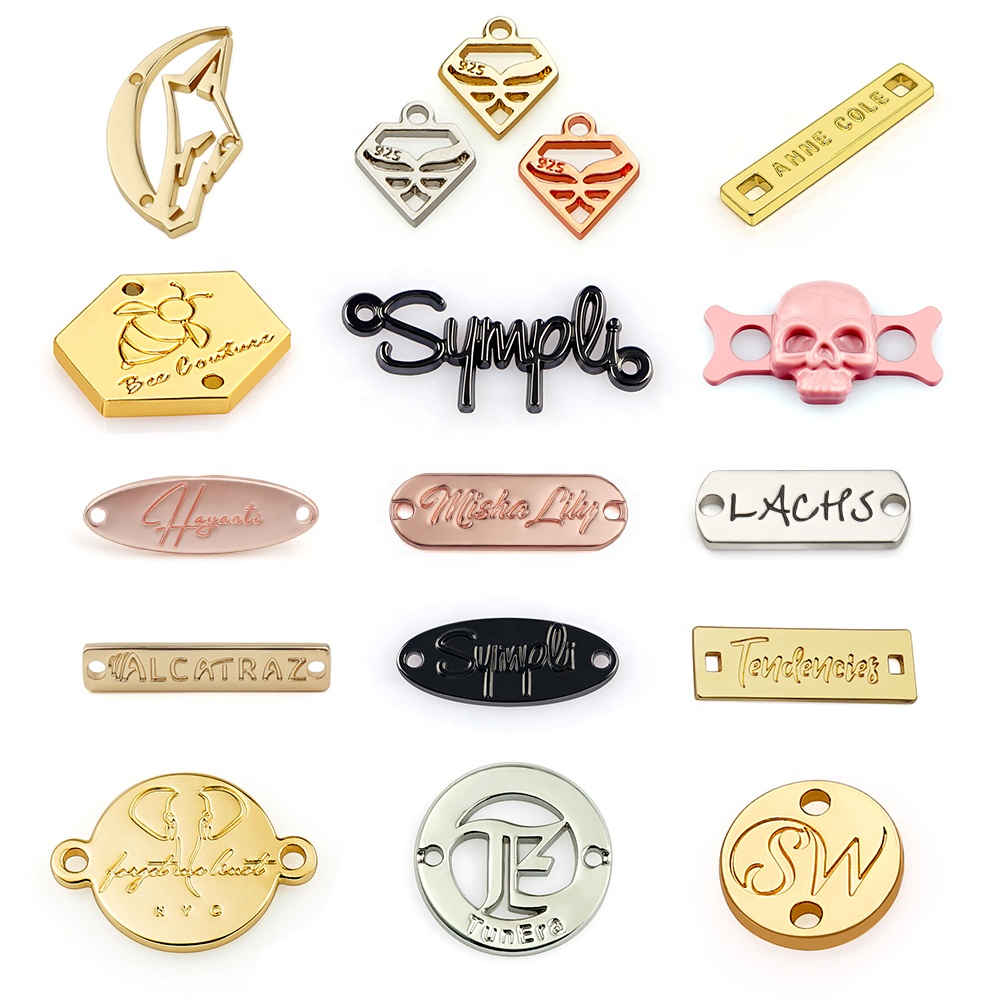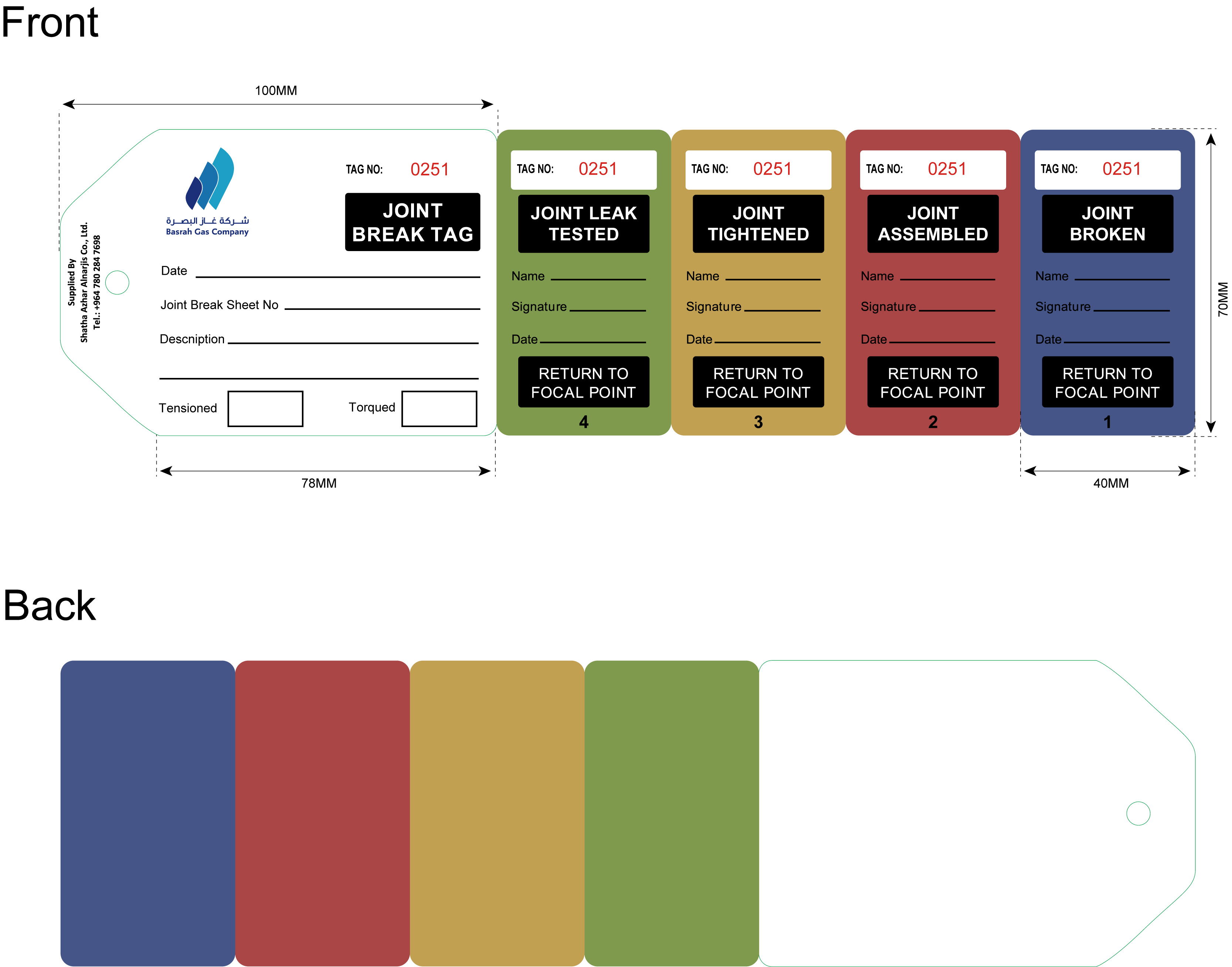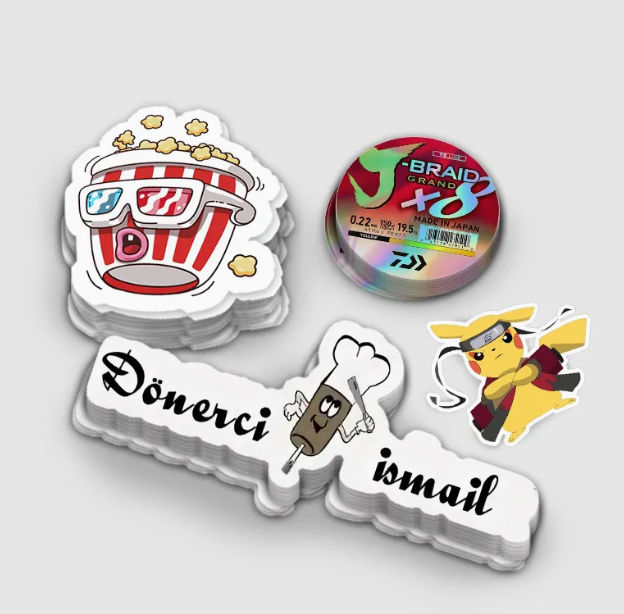When it comes to designing durable and high-quality labels, PVC (Polyvinyl Chloride) has become one of the most popular materials in recent years. From its flexibility and durability to its weather resistance and aesthetic appeal, PVC labels offer distinct advantages in various industries. Whether you're in fashion, retail, sports, or manufacturing, PVC labels can meet the needs of almost any application. But how exactly does PVC compare to other materials like metal, plastic, or paper? In this article, we will explore the benefits of choosing PVC for labels, the scenarios where these labels shine, and how they stack up against alternative materials.
Why Choose PVC for Labels?
PVC labels offer a wide range of advantages that make them highly suitable for a variety of applications. Below, we will explore the key benefits of using PVC for labels:
1. Durability and Longevity
One of the primary reasons for choosing PVC material for labels is its durability. PVC is a robust plastic that can withstand harsh conditions. It is resistant to abrasion, tearing, and weathering, making it ideal for labels that will be exposed to high traffic, extreme temperatures, or outdoor environments.
Scratch-Resistant: PVC labels do not easily scratch or degrade over time, ensuring that they maintain their appearance and legibility even after prolonged use.
Waterproof: Unlike paper labels, PVC labels are highly resistant to water and moisture, making them perfect for use in outdoor, industrial, or wet environments.
UV Resistant: PVC labels are resistant to UV light, ensuring they do not fade when exposed to sunlight over time. This makes them an excellent choice for products that are left outside or in direct sunlight.
2. Flexibility and Versatility
PVC labels can be designed to fit a wide range of shapes and sizes. Their flexibility allows for intricate designs, including logos, text, and complex imagery, which can be raised, embossed, or debossed.
Customizable: PVC labels can be molded into any shape or design, providing an excellent opportunity for brands to create unique and eye-catching labels.
3D Effects: Unlike flat paper labels, PVC allows for 3D effects such as raised lettering or embossed logos, making them stand out more visually.
Multiple Color Options: PVC labels can be produced in a variety of colors and finishes, including matte, glossy, metallic, or transparent, giving brands the ability to align the labels with their aesthetic.
3. Cost-Effectiveness
While PVC might initially seem more expensive than paper, its long-term value and durability make it more cost-effective over time. Unlike paper labels that often need to be replaced due to wear and tear, PVC labels are designed to last for many years.
Lower Maintenance Costs: Since PVC labels are resistant to fading, tearing, and damage, companies can save on replacement costs and maintenance.
Value for Money: PVC's long-lasting properties make it a sound investment, especially for products or environments where label durability is crucial.
4. Aesthetic Appeal
PVC labels have a modern, sleek look that appeals to consumers. Whether they are used on fashion items, consumer electronics, or automotive parts, these labels provide a premium feel and professional appearance.
High-Quality Finish: PVC labels have a smooth surface that makes them ideal for printing detailed designs and fine text. The finish can give a high-end look to any product.
Branding and Identity: PVC labels can significantly enhance the brand’s image, making products appear more sophisticated and appealing to customers.
5. Environmentally Friendly Options
In recent years, there has been a shift towards eco-friendly materials in all industries, and PVC is no exception. While traditional PVC has been criticized for its environmental impact, newer, more eco-friendly PVC options have emerged, which are recyclable and made with lower environmental costs. Companies looking to maintain an environmentally responsible image can opt for recycled PVC or PVC-free alternatives.
Where Can PVC Labels Be Used?
PVC labels are incredibly versatile and can be used in a wide range of industries and applications. Some of the most common uses for PVC labels include:
1. Fashion and Apparel
In the fashion industry, PVC labels are often used for branding and labeling clothing, shoes, and accessories. Their durability ensures they stay intact and visible even after frequent washing or heavy wear. Additionally, the ability to create raised or embossed text adds a unique design element to garments.
Clothing Tags: PVC labels are commonly used as garment labels due to their resistance to wear and fading.
Shoes: Many high-end sneaker brands use PVC labels for their brand logos on shoes, as they offer durability and an aesthetic advantage.
Bags and Accessories: PVC labels are used on handbags, wallets, and other accessories for branding purposes, as they provide a premium feel and excellent visibility.
2. Electronics and Appliances
For consumer electronics like smartphones, laptops, and home appliances, PVC labels offer the toughness required to withstand scratching, water exposure, and frequent handling.
Brand Labels: Electronics manufacturers often use PVC labels for product identification, model numbers, and branding logos.
Durability: The durability of PVC ensures the label remains legible over the long term, even when the product is exposed to heat or moisture.
3. Outdoor Gear and Equipment
For products used outdoors, such as camping gear, sports equipment, or automotive parts, PVC labels are perfect because of their ability to resist the elements.
Water Resistance: Outdoor products often face exposure to water, UV rays, and dirt, and PVC labels are ideal for withstanding these conditions.
Heavy-Duty Equipment: For tools and machinery, PVC labels provide identification and safety warnings, ensuring they remain intact even in challenging environments.
4. Industrial Applications
In industrial settings, PVC labels are often used to mark equipment, machinery, pipes, and safety warnings. The chemical resistance and weatherproof nature of PVC make it a top choice for these environments.
Barcodes and Serial Numbers: PVC labels are commonly used for inventory tracking and serial number identification in warehouses and factories.
Hazard Signs: PVC is also used to create durable safety labels and warning signs that must endure exposure to chemicals, oils, or other hazardous substances.
5. Promotional Products and Gifts
PVC labels are often used in promotional products such as keychains, magnets, and luggage tags. Their ability to be molded into different shapes allows companies to create unique promotional items that stand out.
Custom Keychains: Companies can design PVC labels in the shape of their logo, offering a tactile and durable branding item.
Luggage Tags: PVC luggage tags are widely used for their strength, water resistance, and high customization potential.
PVC Labels vs. Other Types of Labels
While PVC labels are highly popular, it is essential to compare them to other types of labels, such as metal, plastic, and paper labels, to fully understand their advantages.
PVC vs. Metal Labels
Durability: Both metal and PVC labels are durable, but PVC is more flexible and resistant to scratching and bending. Metal labels, however, are often used for products that require a premium feel.
Weight: Metal labels are heavier than PVC labels, which may be a consideration for products where weight is a factor (e.g., in fashion or electronics).
Cost: PVC labels are generally more cost-effective than metal labels, especially for large production runs.

PVC Label

Metal Label
PVC vs. Plastic Labels
Flexibility: While both materials are flexible, PVC labels are typically more tough and resistant to impact, whereas plastic labels may be prone to cracking under stress.
Weather Resistance: PVC has superior UV resistance compared to most standard plastics, making it ideal for outdoor applications.
Aesthetic: PVC labels often offer a higher glossy finish and 3D effects, whereas plastic labels are typically flatter.

PVC Label

Plastic Label
PVC vs. Paper Labels
Durability: PVC is much more durable than paper labels, which can easily tear, fade, or become damaged in wet conditions. PVC labels are perfect for high-use items, while paper labels are more suited to short-term use.
Waterproof: Paper labels are not waterproof and can be ruined by moisture, while PVC labels can endure harsh weather conditions.
Cost: Paper labels are cheaper than PVC labels, but they do not provide the same long-lasting performance, making PVC a better investment for premium products.

PVC Label

Paper Label
Conclusion
PVC labels offer numerous benefits, including durability, versatility, aesthetic appeal, and long-term value. Their ability to withstand extreme conditions, combined with a wide range of customization options, makes them the ideal choice for industries such as fashion, electronics, outdoor equipment, and industrial applications. While other types of labels like metal, plastic, and paper have their own merits, PVC stands out due to its superior weather resistance, flexibility, and cost-effectiveness.
Whether you're looking to create premium branding, durable product tags, or unique promotional items, PVC labels provide an excellent solution that combines functionality with style.




















